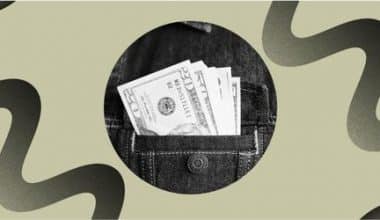When making a house purchase or equity loan, it is crucial to collaborate with a highly reputable mortgage lender. This is because such an investment is significant and requires careful consideration. To accomplish this, compare the rates offered by a minimum of three different lenders. It is important to compare mortgage rates, closing costs, interest rates, loan terms, loan tracking options, and customer service. By making an informed choice, you have the potential to save thousands of dollars in interest throughout the duration of your loan. Hence, to assist you, we have compiled a list of the best lenders who offer home loans for individuals with bad credit. So, let’s delve right in!
Best Lenders for Home Loans with Bad Credit
Bad credit house loan applicants would be glad to find many options available to them. Several loan programs are available specifically designed to assist individuals with bad credit in obtaining the necessary home financing. The services below offer home loans to lenders with bad credit, making buying a property possible even with financial issues. Thus, the best lenders for home loans with bad credit include the following:
#1. Rocket Mortgage
This is one of the best lenders for home loans with bad credit that is notable for its excellent service to customers. All 50 states have online loan processing and access to the company’s 3,000+ mortgage bankers. Additionally, unlike the standard practice in the business, Rocket continues to service 99% of the mortgages it creates. This ensures that clients receive continuous service.
Rocket is one of the largest US retail lenders by loan volume and offers many mortgage solutions. In addition to 15- and 30-year mortgages, the lender’s revolutionary YOURgage program offers mortgages from 8 to 29 years. Finally, Rocket offers loans for first-time buyers with 3% down payments. One+, the lender’s new 1% down loan program, is for applicants earning 80% or less of the region’s median income.
#2. Bank of America
This is also one of the best lenders for home loans. With over 4,300 branches and 2,900 lending centers, this is also one of the best lenders for home loans with bad credit on our list, especially for consumers who want face-to-face interaction. The many mortgage programs offered, low closing costs, accurate estimated interest rates, and widespread availability make Bank of America a reliable financial partner. If you already do business with Bank of America, you may be eligible for lower origination fees and other benefits, making this an even more attractive option.
All that’s required to apply for a loan and get pre-approved is a web presence. Through the mobile app, customers of Bank of America have access to the Home Loan Navigator, where they may electronically sign, submit, and track their loan documents.
#3. Prosperity Home Mortgage
Since Prosperity Home Mortgage offers numerous mortgage options and first-time homebuyer resources, we believe they are the best overall lender for consumers with bad or fair credit. While the minimum credit score required to work with the organization isn’t published anywhere online, we were told by a representative that it’s about 600. Borrowers might have a debt-to-income ratio of 45%, which is much greater than the limits set by the majority of lenders.
The lender’s BorrowSmart program may also help borrowers who have a hard time getting mortgages from other institutions. If you qualify, you might earn up to $1,500 to put toward your mortgage down payment or closing costs, bringing your total required down payment to less than 3%. Prosperity works with Fannie Mae’s HomeReady program, which provides a mortgage option for those in low-income, minority, and disaster-affected areas.
#4. Ally Home
Mortgage applications typically incur fees from the lender, including an application fee, purchase fee, processing fee, and screening fee, which can add up to a large sum. These are not fees that are charged by Ally Bank (although the evaluation fee, recording fee, ownership search, and insurance may be). Online loan preapproval processes can take as little as three minutes.
Low- to middle-income homebuyers (whether first-timers or repeat buyers) can take advantage of Ally’s HomeReady mortgage program, which requires as little as a 3% down payment. A minimum of one borrower is required to complete a homeowner education course, and candidates must have a debt-to-income ratio of no more than 50% and an income that is at or below 80% of the area median income.
This lender does not offer Federal Housing Administration loans, Veterans Administration loans, or Farmers and Ranchers Home Administration loans; nevertheless, borrowers can qualify for a jumbo loan. Mortgages are available with terms of 15, 20, or 30 years, and borrowers can select a fixed or adjustable interest rate.
#5. Better.com
We recommend Better Mortgage because it is one of the easiest and quickest online mortgage providers to work with. A borrower can get an estimate of their interest rate in a matter of seconds, and if they wish to apply for a loan, they can do so entirely online. Furthermore, Better does not tack on any hidden origination or commission fees. Better Mortgage accepts borrowers with credit scores as low as 620 for conventional loans and 580 for FHA loans. Borrowers with bad credit may find FHA loans interesting because of the low credit score requirements (10% down) and the possibility of approval with as little as a 500 score.
With a score below the industry average, Better has a great reputation for customer service, ranking 16th out of 22 lenders in the J.D. Power U.S. Primary Mortgage Origination Satisfaction Study.
USDA loans are not available through Better Mortgage. Loans with no initial deposit are attractive to certain consumers, but getting one requires the borrower to interact with a third-party lender. In 2014, they introduced Better Mortgage. It lends money to people in every state.
You may want to see: BEST STARTUP BUSINESS LOANS IN 2023
Types of Mortgages
When it comes to purchasing a home, there are a range of mortgage options that cater to different needs and preferences. These six common types of mortgages have gained popularity among homebuyers: conventional mortgages, jumbo mortgages, Federal Housing Administration (FHA) mortgages, Department of Veterans Affairs (VA) mortgages, United States Department of Agriculture (USDA) mortgages, and 203(k) mortgages. Each of these mortgage options offers distinct features and benefits, allowing prospective homeowners to make an informed decision based on their unique circumstances.
#1. Conventional Loan
Most homebuyers opt for conventional mortgages. Government organizations do not sponsor them; rather, institutional lenders like commercial banks, home financing companies, and cooperatives do. Qualifying for a conventional mortgage can be more challenging than for a government-backed mortgage like an FHA loan, but conventional mortgages often have lower interest rates.
#2. Jumbo Mortgage
The Federal Housing Finance Agency (FHFA) has lending limits, and a jumbo mortgage is a loan that goes above those limits. They’re given to borrowers with excellent finances and great credit scores so they can buy pricey residences. A jumbo loan often necessitates a bigger down payment. In many regions of the country, you can use a jumbo loan to buy a home for more than the FHFA limit for 2023, which is $726,200. The FHFA cap increases to $1,089,300 in high-cost locations.
#3. FHA Loan
The Federal Housing Administration insures loans from qualified lenders who offer these programs. They are designed for first-time homeowners with lower incomes who do not qualify for a traditional mortgage. FHA loans are preferable since they are easier to qualify for than traditional loans. Borrowers with credit scores of 580 or above are eligible to put down as little as 3.5 percent. You can get approved with a credit score as low as 500, provided you have at least a 10% down payment. However, mortgage insurance premiums are required for either 11 years or the whole term of the loan, depending on the amount of the down payment.
#4. VA Loan
A VA-backed mortgage may be available to you if you are either currently serving in the military or a veteran of the United States Armed Forces (or the spouse of either). A VA loan does not require a down payment as long as your eligibility is in good standing. Veterans with unused benefits must adhere to VA loan limits when purchasing a property.
Neither the VA nor the FHA really issues these loans. To apply for a VA loan, you must do it through a VA-approved lender.
#5. USDA Loan
Buyers with low to moderate incomes in USDA-approved rural areas are eligible for USDA loans. There is no need for a down payment or private mortgage insurance (PMI), but you will have to pay a guaranteed charge up front and an annual fee to keep up with the loan’s principal and interest.
#6. 203(k) Loan
The Federal Housing Administration (FHA) offers a financing program called a 203(k) to homebuyers who want to make major improvements to a property they plan to purchase. A 203(k) mortgage will finance both the house and any necessary renovations. This loan cannot be used to acquire a second home or investment property.
What Type of Mortgage Is the Easiest to Get?
The ease of qualifying for a mortgage is contingent upon various factors that are unique to each individual. FHA loans have gained recognition for their lenient credit score requirements. However, it’s worth noting that if you meet the specific criteria, you may find it easier to qualify for a VA loan or a USDA loan. These alternative loan options come with their own set of eligibility guidelines, which could potentially work in your favor. In order to qualify for a VA loan, it is necessary to fulfill specific eligibility criteria. These requirements typically include being an active or retired member of the military, or alternatively, being a military spouse. Thus, by meeting these qualifications, individuals can avail themselves of the benefits and opportunities provided by a VA loan.
Is It Better to Get Mortgage From Lender or Bank?
Determining the optimal choice for your unique situation is contingent upon a variety of factors. For individuals who find themselves lacking a credit history or burdened with poor credit, securing a loan can often prove to be a challenging endeavor. However, one potential avenue that may offer a glimmer of hope is exploring the possibility of obtaining a loan from a private lender. Having a commendable credit score or a well-established rapport with a financial institution can greatly enhance your chances of securing more favorable lending terms.
Which Type of Loan Is Low Interest Rate?
When it comes to borrowing money, secured loans often emerge as the more cost-effective option. This is primarily a result of the fact that they have backing from collateral, which gives lenders additional security. As a result, secured loans generally come with lower interest rates compared to their unsecured counterparts. Unsecured loans, also known as collateral-free loans, do not require any form of collateral security. However, this lack of collateral does come with certain implications, such as higher interest rates.
What Is the Lowest Credit Score to Get a Home Loan?
When embarking on the journey of applying for a conventional loan, it is highly advisable to possess a credit score of 620 or above. This benchmark serves as a crucial factor in determining your eligibility and potential success in securing the loan. If your credit score falls below 620, it may pose challenges when seeking loan approval from lenders. In such cases, lenders might either be unable to approve your loan or may need to offer you a higher interest rate. This, in turn, can lead to increased monthly payments on your loan.
Does It Really Matter What Mortgage Lender You Use?
While the fundamental aspects of the mortgage process remain consistent across various lenders, it is crucial to acknowledge the subtle distinctions that can impact the fees incurred and the quality of service rendered. These nuances warrant careful consideration when embarking on your search for the ideal mortgage provider.
Why Use a Lender and Not a Bank?
Due to their commitment to serving a diverse range of borrowers, they tend to adopt more flexible credit requirements. Mortgage companies possess a distinct advantage over traditional banking institutions due to their specialized focus on mortgage services. This specialization enables them to streamline their loan processing procedures, resulting in expedited loan approvals and disbursements. As a result, borrowers can experience a more efficient and prompt mortgage application process when opting for the services of mortgage companies.
References
- nerdwallet.com
- badcredit.org
- money.com
Related Posts
- HOW TO GET A BANK LOAN: All You Need to Know
- Application Letter For Loan: How To Write A Loan Request Application In Nigeria
- Lenders for Poor Credit: Best Options.
- BEST STARTUP BUSINESS LOANS IN 2023
- LOAN SERVICING: Types, Examples, and Benefits
- BEST PRIVATE STUDENT LOANS: Best Student Loan Lenders 2023






